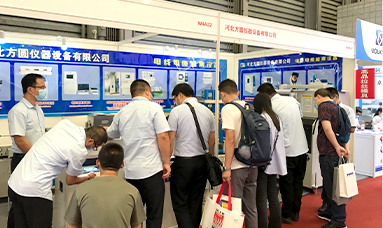electronic tensile testing machine
Understanding Electronic Tensile Testing Machines
Electronic tensile testing machines play a vital role in material science, engineering, and quality control processes across various industries. These sophisticated devices are designed to evaluate the mechanical properties of materials by applying controlled tensile stress, ultimately providing crucial data for material characterization and performance evaluation.
At the core of a tensile testing machine is its ability to stretch a sample material until it either yields or fractures. The machine consists of several key components, including a load cell, which measures the force applied to the specimen; grips to hold the sample securely; and a crosshead that moves to apply the load. The electronic system interfacing with these components ensures precise control and accurate data acquisition throughout the testing process.
One of the key advantages of electronic tensile testing machines is their precision. Unlike manual systems, electronic machines minimize human error and enhance reproducibility of results. They can be programmed to perform various types of tensile tests, such as standard uniaxial tests, which measure ultimate tensile strength, yield strength, and elongation, or more specialized tests that assess properties under different environmental conditions.
electronic tensile testing machine

The results obtained from tensile testing are critical for engineers and scientists. They provide insights into how materials behave under stress, which is essential for selecting the appropriate material for specific applications. For instance, industries such as aerospace and automotive rely heavily on tensile test data to ensure that the materials used in their products can withstand the operational stresses they encounter.
In recent years, the advancement of technology has led to the integration of computer software with electronic tensile testing machines. This collaboration enables automatic data analysis, visualization of stress-strain curves, and the generation of comprehensive reports. It also facilitates easier compliance with industry standards and testing protocols, ensuring that manufacturers meet regulatory requirements.
Furthermore, many modern electronic tensile testing machines are equipped with features such as extensometers, which allow for precise measurement of elongation and reduction of area during testing. This additional data is crucial for understanding the ductility of materials, which can influence the performance and durability of end products.
In conclusion, electronic tensile testing machines are indispensable tools in the field of material testing. Their accuracy, versatility, and incorporation of advanced technology make them essential for ensuring materials meet the stringent demands of various applications. As industries continue to evolve and materials science advances, the role of these machines will undoubtedly grow, reinforcing their importance in engineering and quality assurance processes.
-
Why the Conductor Resistance Constant Temperature Measurement Machine Redefines Precision
NewsJun.20,2025
-
Reliable Testing Starts Here: Why the High Insulation Resistance Measuring Instrument Is a Must-Have
NewsJun.20,2025
-
Flexible Cable Flexing Test Equipment: The Precision Standard for Cable Durability and Performance Testing
NewsJun.20,2025
-
Digital Measurement Projector: Precision Visualization for Modern Manufacturing
NewsJun.20,2025
-
Computer Control Electronic Tensile Tester: Precision and Power for the Modern Metal Industry
NewsJun.20,2025
-
Cable Spark Tester: Your Ultimate Insulation Assurance for Wire and Cable Testing
NewsJun.20,2025
 Copyright © 2025 Hebei Fangyuan Instrument & Equipment Co.,Ltd. All Rights Reserved. Sitemap | Privacy Policy
Copyright © 2025 Hebei Fangyuan Instrument & Equipment Co.,Ltd. All Rights Reserved. Sitemap | Privacy Policy
